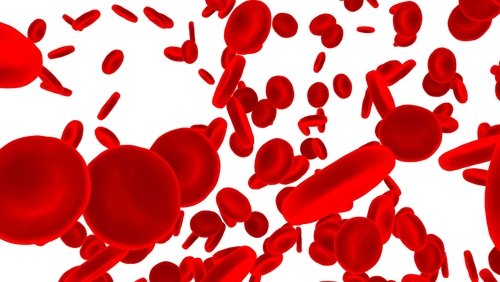‘Natural’ Gene Mutation May Offer Way of Treating Sickle Cell Disease, Study Says

Introducing a “natural” genetic mutation into the blood cells of people with sickle cell and like diseases, using CRISPR gene editing, was seen to restore the production of fetal hemoglobin and offer a way to treat these disorders, researchers report.
Their study was published in the journal Blood, in an article titled “KLF1 drives the expression of fetal hemoglobin in British HPFH.”
Sickle cell disease (SCD) patients have a genetic defect that leads them to produce hemoglobin S, or sickle hemoglobin, instead of normal hemoglobin. This impairs the ability of red blood cells to bind to oxygen molecules in the lungs, and consequently to deliver oxygen to tissues throughout the body.
A stem cell transplant is the only treatment available for sickle cell disease, but in most cases is not a viable option. Instead, symptom management in SCD is based on blood transfusions and therapies to control pain and prevent complications.
A benign genetic mutation in the fetal globin gene is called the British-198 mutation, because it was first discovered in a British family in 1974. Fetal hemoglobin has high affinity to oxygen, and commonly shuts down after birth. However, those carrying the “naturally occurring” British-198 gene variant had high levels of fetal hemoglobin in adulthood, with levels reaching up to 20% expression compared to the 1% found in most children and adults.
In SCD patients with this mutation — an alternation in a single letter of the fetal globin gene — the extra fetal hemoglobin produced is known to compensate for the lack of normal adult hemoglobin, and their disease is milder.
Seeing therapeutic potential, researchers at the University of New South Wales (UNSW) — in collaboration with the Japanese Red Cross Society and the RIKEN BioResource Centre in Japan — tested if they could introduce the British-198 mutation into human cells to induce fetal hemoglobin production.
Taking advantage of the specificity and efficiency of CRISPR, the researchers induced the expression of the British-198 variant into stem cells that give rise to red blood cells.
“With CRISPR gene-editing we can now precisely cut and alter single genes within our vast genome,” Merlin Crossley, the study’s senior author and UNSW molecular biologist, said in a news release.
The induced mutation was found to increase production of fetal hemoglobin, through a mechanism mediated by a protein called KLF1. In the presence of the genetic variant, KLF1 binds to and turns “on” the fetal globin gene, switching it from its natural “off” state.
“Our laboratory has shown that introducing the beneficial mutation British-198 into blood cells using this technology substantially boosts their production of fetal hemoglobin,” Crossley said. “Because this mutation already exists in nature and is benign, this ‘organic gene therapy’ approach should be effective and safe to use to treat, and possibly cure, serious blood disorders.”
But, he added, “more research is still needed before it can be tested in people.”






